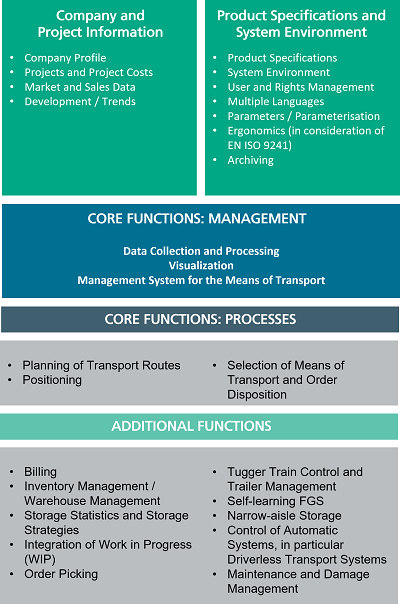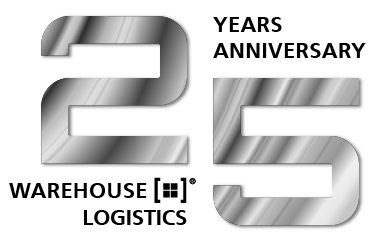FGS Questionnaire (in planning)
Which Functional Aspects Does the FGS Questionnaire Cover?

The questionnaire for Forklift Guidance Systems (FGS questionnaire) is part of the System questionnaires, which together form the basis of the »Logistics IT Database« provided by Fraunhofer IML.
In addition to general aspects about the company, the FGS questionnaire also covers the company’s range of services and experiences. However, the focus of the FGS questionnaire is on the functional support of internal transport tasks. Here, basic functions for the management of means of transport as well as the planning and control of internal transports are recorded. Additional functions also cover the efficient disposition and management of different types of industrial trucks depending on the type or the desired degree of automation of the warehouse.
This results in a level of detail that reflects both the individual requirements of the user and the functional capabilities of the FGS solutions. Typical questions are for example
- How does the system guarantee that the correct storage location is used?
- Depending on what factors are the available means of transport prioritised?
- Which combination of load carrier types is supported by this system?
Scope of functions of the FGS Questionnaire
In addition, the questionnaire collects a variety of other information relating to developments, trends and assessments of the respective company in the FGS market.
The questionnaire is adapted or extended annually according to the latest requirements and developments. In addition to project experience, feedback from the users of the database (FGS providers, FGS users and consulting companies) is also used for this purpose.
Validation and Use of the Data
The data provided by a Logistics IT provider vendor is not added to the Database or made available for use by »Logistics IT Online Selection« until it has been successfully validated. The annual updating of the questionnaire combined with the yearly validation of the data is what guarantees that the data is always up to date.
